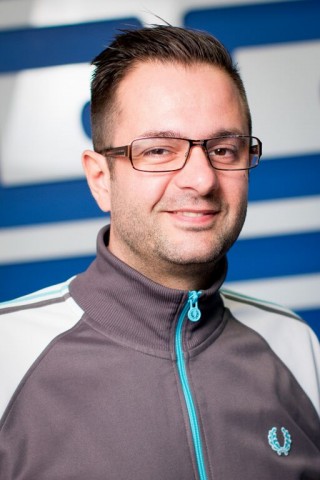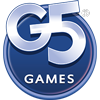In his talk, Making a Successful Casual Studio, Daniel Persson, Head of Studio at Goodgame Studios, highlighted the key factors that are imperative while setting up a studio that is built to succeed. One way he shared to drive the team to success is to embrace key elements like passion & innovation. The key to successful games starts at the foundation of a happy and successful studio, and the results are reflected in the end product which in turn makes for an overall hit success mantra. In Daniel’s opinion, “The more you have outside reporting, the more you have diverging goals and (thus) the more problems you are going to get for the product.” For more valuable pointers, see the video below from the Casual Connect USA.


Daniel Persson, Head of Studio at Goodgame Studios, brings to this position fifteen years of experience and expertise in game design and development. He has held leading positions in a variety of companies including King, FunCom, Starbreeze and IQ Interactive. Recently he discussed his work with Casual Connect, revealing the passion and focus that allow him to inspire and motivate others.
Casual Connect: Tell us about the work you do at your company. How did you come to work at Goodgame Studios?
Daniel: I am heading the Casual Studio at Goodgame Studios. As the name suggests, the team focuses on casual games, and we will be launching our first title this year. I joined Goodgame Studios because I felt a connection to the company and the people who work here from the moment I got to know them. Such a personal connection is very important to me.
CC: How have your past career experiences been helpful to you in your position at Goodgame Studios?
Daniel: Before I joined Goodgame Studios the Casual Studio did not exist and it was my responsibility to build it up. It helped a lot that I had a similar experience at King.com prior to this role, where I had set up a second studio for the company in Sweden and launched the game Pet Rescue Saga.
Goodgame Studios’ Casual Studio is still growing; we already have our first game ready for launch this year, and more products are in the pipeline. In running the studio, I have fifteen years of experience in the gaming industry. I also have an incredible team that I am very proud of and that makes the job a lot of fun.

CC: What do you do in your free time? What are your hobbies?
Daniel: I play games – and a lot of them. Since I was a kid, games have been my big passion and I spent a lot of time playing and exploring them. Today, I still play everything from console to mobile and hardcore to casual. There is so much great stuff out there you could keep yourself entertained for a lifetime.
My latest passion is my vinyl collection. I recently bought a new record player and am currently dusting off my old records and rediscovering music that captivated me in the past, which is a lot of fun. I mostly like old soul and R’n’B from the ’70s. I love scouring through the internet to increase my collection and find all the old records that I want to own.
CC: What is your favorite thing about your job?
Daniel: What I like most is that I can inspire and motivate people. It is great to see my team do amazing things, and to be able to support their growth and success is a big win for me. I am always trying to challenge them so they can think out of the box and achieve more than they think they can.

CC: What inspired you to pursue this career?
Daniel: Simply the idea to make my own games and thinking that I might be good at it.
CC: Do you have any advice for someone interested in pursuing the same career?
Daniel: My advice would be to pursue your passion and your goal with all that you’ve got. It starts with getting a good education in the field of games. When I started there was little to no education available, and today there are so many options, which is a great advantage to anyone who would like to work in this industry. I would tell everyone to really explore all their options, also in other parts of the world, and to save some money and to go there and make it happen. There is no easy way into the gaming business, and you really have to work hard, apply to a lot of jobs and fully dedicate yourself to your dream.
CC: What was your dream job as a child?

Daniel: When I was small I wanted to be a doctor because I wanted to learn how to keep my grandparents alive forever.
CC: In your younger years, was there anything that hinted at your future career path in gaming? Did you expect to end up where you are today?
Daniel: No, I certainly did not expect to end up where I am today, but I have always loved games, and it was very natural that I would go in that direction. I certainly hoped it would turn into a career and worked hard for it.
CC: When did you first become interested in design?
Daniel: In the 1980s I watched a TV show called “V”, which inspired me to do my first game design. I tried to get it implemented on a spectrum, but it failed miserably.
CC: What is your creative process like? Where do you begin?
Daniel: I usually begin by asking the question, “Wouldn’t it be cool if…,” and if the response is, “Yes, that would be really cool!” I know I am heading in the right direction.
CC: Where do you find the most inspiration for your designs? What was the most interesting thing you found inspiration from?

Daniel: I like abstracting things. If I find something that I like and that captivates me in a film or a book or something else, I try to figure out the general concept and why it works on me. Sometimes that can be adapted to a game. I make notes in my head all the time and also write down thoughts so that I can use such a concept when it fits.
CC: What is the most challenging part of game development for you? What is the most rewarding?
Daniel: The most challenging part is definitely “finding fun” because there are no rules to what makes for fun. If I make a fun game today, I will not be able to replicate that tomorrow, because what makes it fun is always very unique. There is no template or formula for it. The most rewarding part is, of course, when we “find fun”, and when not only the team thinks so, but when everyone around us also believes that the game is entertaining and awesome.

CC: What methods do you use to handle creative blocks? Do creative blocks occur frequently?

Daniel: Yes, creative blocks definitely happen, because in this job you constantly explore new ideas, which can lead to some kind of creative fatigue. If someone in my team experiences such a moment or phase, I try to give them some fresh thoughts or maybe a new direction. If it happens to me, I usually just push through it and am very stubborn, because I really want to find a solution, even if it involves some sleepless nights.
Every game that gets canned is a painful experience for me. There is not really a way out, I think, apart from learning to not take it too personally and see it as a chance to improve and make the next game better. The more experience you have, the easier it gets to accept this, I guess.
CC: What has been the proudest moment during your career so far? What led to this moment happening?
Daniel: Building the team in Malmö for King.com and releasing the game “Pet Rescue Saga” was my proudest moment so far. What made it possible was mainly a lot of hard work, especially in recruiting, building the team culture and enabling the team to do great work.

CC: What do you think will be the next big trend in the industry in the upcoming three to five years? How are you incorporating this trend into your future plans?
Daniel: I think that more and more great products will come from small independent studios. I find it really interesting to see all the exciting innovations that come from these small teams. Generally, I think that there are still too many established norms in this market, and that these need to be challenged. For Goodgame Studios, this means that we will continue to explore new opportunities in the casual genre – and also in other areas, of course.
CC: What do you think your staff commonly says about you? What do your employees think of you?
Daniel: They will say that I am very demanding as well as a good coach and mentor. I put a lot of energy into motivating them and keeping their passion and creativity going. Also, they will most probably say I am very passionate about games.
CC: What attributes do you look for in a member of your team?
Daniel: I think that what matters most is that people just fit, with their skills and also culturally. That is what I pay most attention to when recruiting new people. They have to be very passionate about the product and feel and act strongly as team players. And it goes without saying that I also want them to be very good in their area of expertise.
Comments









